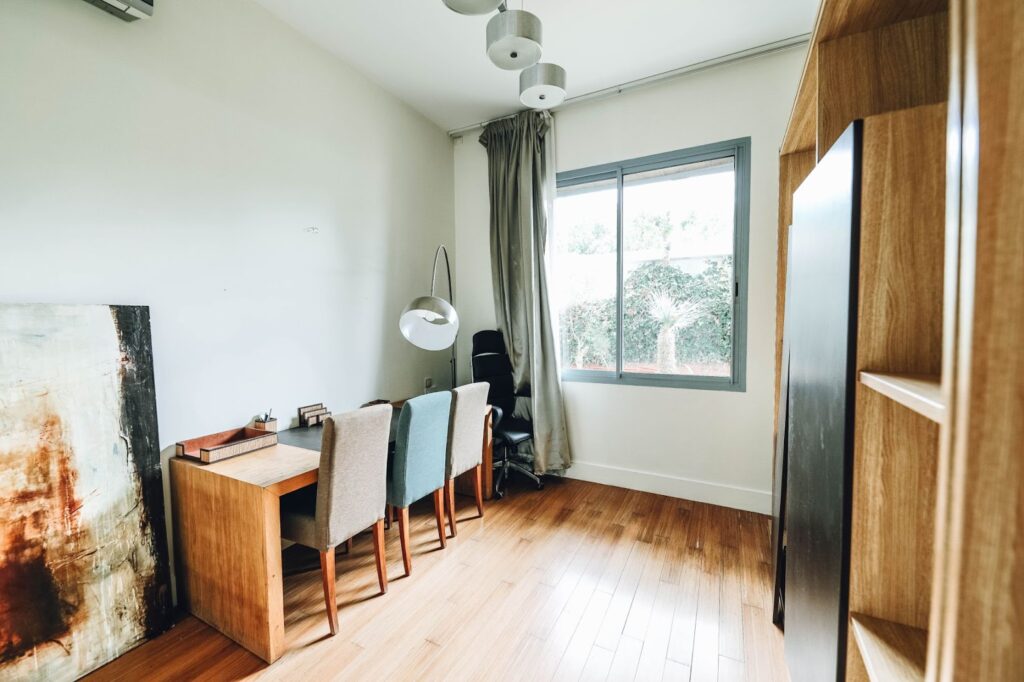Buying a short sale home can be an enticing opportunity for buyers looking to snag a good deal in the real estate market. However, it’s important to understand and consider the potential risks associated with this type of purchase. In this article, I’ll explore some key factors that buyers should be aware of before diving into a short sale transaction.
One major risk when buying a short sale home is the uncertainty surrounding the timeline and process. Unlike traditional sales, where transactions are typically completed within a few weeks, short sales can take significantly longer to close. This is because the seller’s lender must approve the sale and negotiate with all parties involved. As a buyer, you may have to endure extended periods of waiting and uncertainty, which could potentially lead to frustration or even cause you to miss out on other opportunities.
Another risk lies in the condition of the property itself. Short sale homes often come with their fair share of maintenance issues and repairs needed. Due to financial constraints faced by sellers in this situation, they may not have been able to properly maintain or address any existing problems with the property. As a result, buyers need to carefully inspect short sale homes and budget for potential repair costs that may arise after closing.
By understanding these risks upfront, buyers can make informed decisions when considering purchasing a short sale home. It’s crucial to weigh both the potential benefits and drawbacks before proceeding with such a transaction. In the following sections, I’ll delve deeper into each risk factor mentioned above and provide tips on how buyers can navigate them effectively.
Understanding Short Sales
Short sales can be an attractive option for buyers looking for a good deal on a home. However, it’s important to understand the risks involved before diving in. In this section, I’ll break down what short sales are and provide some key points to consider.
- What is a Short Sale? A short sale occurs when a homeowner sells their property for less than the amount they owe on their mortgage. This typically happens when the homeowner is facing financial hardship and can no longer afford to make mortgage payments. The lender agrees to accept less than the full amount owed as payment in order to avoid going through foreclosure.
- The Process: Short sales involve several steps that can be complex and time-consuming. Here’s a simplified overview of how it works:
- The homeowner decides to pursue a short sale and lists the property.
- A buyer makes an offer, which must then be approved by both the seller and the lender.
- If accepted, the transaction moves forward, with additional paperwork and negotiations taking place.
- Once all parties agree, the sale is finalized.
- Potential Benefits: One of the main advantages of buying a short sale home is the potential for savings. These properties are often priced below market value, presenting an opportunity for buyers to get more house for their money. Additionally, short sales may offer less competition compared to traditional listings.
- Risks to Consider: While there are potential benefits, it’s crucial to be aware of the risks associated with buying a short sale home:
- Lengthy Process: Short sales can take significantly longer than traditional real estate transactions due to additional paperwork and negotiations involved.
- As-Is Condition: Short sale properties are usually sold “as-is,” meaning you may need to invest in repairs or renovations after purchasing.
- Financing Challenges: Securing financing for a short sale can be more difficult as lenders may require additional documentation and have stricter requirements.
- No Guarantees: There’s no guarantee that the lender will accept your offer or that the sale will go through, even after investing time and effort into the process.
- Seek Professional Guidance: Considering the complexities involved, it’s highly recommended to work with a real estate agent experienced in short sales. They can guide you through the process, help negotiate on your behalf, and provide valuable insights.
In conclusion, while short sales can present opportunities for buyers, it’s important to approach them with caution and understanding. By being aware of the risks involved and seeking professional advice, you can make an informed decision when considering a short sale home purchase.
The Benefits of Buying a Short Sale Home
When considering purchasing a home, many buyers may overlook the option of buying a short sale property. While there are certainly risks involved, it’s important to also consider the potential benefits that come with this type of purchase. Here are some reasons why buying a short sale home can be advantageous:
- Lower Purchase Price: One of the main advantages of buying a short sale home is the potential for a lower purchase price compared to traditional listings. Short sales occur when the homeowner is struggling financially and needs to sell their property quickly. As a result, they often list their home at a price below market value in order to attract potential buyers.
- Opportunity for Equity: Purchasing a short sale home at a lower price means that you have an opportunity to build equity right from the start. If the market conditions improve or if you make strategic improvements to the property, its value could increase over time, allowing you to potentially sell it for a profit.
- Less Competition: Short sale properties tend to have less competition compared to regular listings since they require more patience and flexibility on the part of buyers. This reduced competition can work in your favor as you negotiate with sellers and potentially secure better terms or concessions.
- Potential for Customization: Many short sale homes may require some level of repair or renovation due to neglect or financial constraints faced by previous owners. However, this presents an opportunity for buyers who enjoy customization and want to put their personal touch on their new property.
- Possibility of Negotiation: Short sales often involve negotiations between multiple parties including lenders, homeowners, and buyers’ agents. This negotiation process can provide opportunities for buyers to secure favorable terms such as seller-paid closing costs or repairs.
It’s important to note that while these benefits exist, there are also potential risks associated with buying a short sale home which should be carefully considered before making a decision. However, for buyers who are willing to do their due diligence and take on some level of uncertainty, the benefits can make purchasing a short sale home a worthwhile opportunity.
Risks Associated with Buying a Short Sale Home
When considering the purchase of a short sale home, it’s important to be aware of the potential risks involved. While these types of properties can offer attractive prices and opportunities for buyers, there are several factors that should be taken into consideration before making a decision.
- Uncertain Timeline: One of the main risks associated with buying a short sale home is the uncertainty surrounding the timeline. Unlike traditional home sales, where transactions typically move forward smoothly and quickly, short sales involve negotiations between the homeowner, lender, and potential buyer. This process can often be lengthy and may result in delays or even falling through altogether.
- Condition of Property: Another risk to consider is the condition of the property. In many cases, homeowners facing financial difficulties may have neglected maintenance or repairs on their homes. This means that buyers could potentially inherit properties with significant issues or repair needs that they were not initially aware of. It’s crucial to conduct thorough inspections and assessments before finalizing any purchase agreement.
- Limited Negotiation Power: When purchasing a short sale home, buyers have limited negotiation power compared to other real estate transactions. The terms and conditions are usually dictated by the lender who holds the mortgage on the property. This lack of control over negotiations can lead to unfavorable outcomes for buyers.
- Potential Liens and Title Issues: Short sale properties may come with hidden liens or title issues that can create complications after purchase. These liens could include unpaid taxes or outstanding debts against the property that become the responsibility of new owners if not resolved beforehand.
- Competitive Bidding: Due to their lower price points compared to market value, short sale homes often attract multiple interested parties looking for an investment opportunity or affordable housing option. This competition can drive up prices and make it more challenging for individual buyers to secure a deal.
- Financial Risks: Lastly, potential buyers should consider the financial risks associated with purchasing a short sale property. In some cases, buyers may be required to make repairs or renovations immediately after purchase, which can add significant costs on top of the purchase price.
In conclusion, while there are opportunities for finding good deals through short sales, it’s crucial to approach these transactions with caution and thorough due diligence. Understanding and assessing the risks involved will help you make an informed decision and mitigate any potential challenges that may arise during the process.
Evaluating the Property Condition
When considering buying a short sale home, one of the most important steps is to thoroughly evaluate the property condition. This will help you understand any potential risks and make an informed decision. Here are some key factors to consider:

- Inspection: Before committing to a purchase, it’s crucial to hire a professional inspector who can assess the overall condition of the property. They will examine various aspects such as the foundation, roof, plumbing, electrical systems, and HVAC units. Their expertise can uncover hidden issues that may not be immediately apparent.
- Repairs and Maintenance: Short sale homes often come with their fair share of maintenance and repair needs. It’s essential to carefully review any disclosure statements provided by the seller regarding past repairs or ongoing issues with the property. Additionally, conducting a thorough walk-through of the house yourself can help you identify potential areas for improvement or necessary repairs.
- Structural Integrity: Pay close attention to signs of structural damage such as cracks in walls or ceilings, uneven floors, or sagging foundations. These could indicate significant underlying problems that may require costly repairs.
- Water Damage: Water damage can be a common issue in short sale homes due to neglect or previous leaks that have not been properly fixed. Look out for water stains on walls or ceilings and check for musty smells which could indicate mold growth.
- Pest Infestation: Another risk associated with neglected properties is pest infestation such as termites or rodents. Look for signs of pests like droppings, chewed woodwork, or nests during your inspection.
- Neighborhood Evaluation: Assessing the neighborhood where the short sale home is located is also crucial. Research local crime rates, school district quality, amenities available nearby, and future development plans in order to make an informed decision about its desirability.
Remember that while evaluating the property condition is important, it’s also essential to consult with professionals such as real estate agents or attorneys who have experience in dealing with short sales. They can guide you through the process and help you navigate any potential risks or challenges that may arise.
By conducting a thorough evaluation of the property condition, you can minimize surprises and make an informed decision when it comes to purchasing a short sale home.
Researching the Seller’s Financial Situation
When considering buying a short sale home, it’s crucial to thoroughly research the seller’s financial situation. This will help you determine the level of risk involved and make an informed decision. Here are some key factors to consider:
- Financial Documentation: Requesting copies of the seller’s financial documents is essential in assessing their situation. This may include bank statements, tax returns, pay stubs, and any other relevant paperwork. Analyzing these documents can provide insights into their income, debts, and overall financial stability.
- Mortgage Status: Understanding the status of the seller’s mortgage is vital information when buying a short sale property. Find out if they are behind on payments or facing foreclosure proceedings. This will give you an idea of how urgent their need to sell is and whether they have any outstanding liens or judgments against them.
- Credit History: Reviewing the seller’s credit history can offer valuable insights into their financial track record and ability to meet obligations. Look for any past bankruptcies, collections, or late payments that could impact their ability to close the transaction successfully.
- Other Liabilities: In addition to mortgage debt, sellers may have other financial obligations that could affect your purchase process. These may include unpaid taxes, homeowner association fees, or outstanding utility bills. Identifying these liabilities upfront will help you assess potential risks and negotiate terms accordingly.
- Professional Assistance: It can be challenging for buyers to navigate through complex financial information alone when researching a seller’s situation effectively. Consider seeking guidance from professionals such as real estate agents who specialize in short sales or even consulting with a real estate attorney who can provide expert advice and ensure all necessary checks are conducted.
Remember, thorough due diligence is crucial when researching a seller’s financial situation before purchasing a short sale home. By understanding their circumstances upfront, you’ll be better equipped to assess risks, negotiate terms, and make an informed decision that aligns with your financial goals.
Navigating the Negotiation Process
When buying a short sale home, one of the most crucial steps is navigating the negotiation process. This stage can be complex and time-consuming, but with proper preparation and understanding, you can increase your chances of securing a favorable deal. Here are some key points to keep in mind when navigating the negotiation process:
- Research and Prepare: Before entering negotiations for a short sale home, it’s essential to conduct thorough research about the property, its market value, and any potential liens or outstanding debts. This information will empower you during negotiations and help you make informed decisions.
- Understand the Lender’s Perspective: In a short sale transaction, the lender plays a significant role as they need to approve the sale price. It’s crucial to understand their perspective and motivations. Lenders typically aim to minimize losses while still ensuring a fair market value for the property.
- Work with an Experienced Real Estate Agent: Collaborating with an experienced real estate agent who specializes in short sales can significantly benefit you during negotiations. They will have knowledge of local market conditions, negotiation strategies, and experience dealing with lenders.
- Determine Your Maximum Offer: Assess your financial situation and establish your maximum offer for the property before entering into negotiations. Consider factors such as repairs needed, comparable sales in the area, and your budget constraints.
- Be Patient: The negotiation process for a short sale home can be lengthy due to multiple parties involved – including sellers, lenders, buyers’ agents, and attorneys if necessary. Patience is vital as there may be delays or counteroffers that need careful consideration.
- Communicate Effectively: Clear communication between all parties involved is crucial during negotiations for a short sale home. Promptly respond to requests from sellers or lenders while ensuring that all agreements are documented in writing.
Remember that each negotiation process is unique; therefore flexibility is key throughout this phase of purchasing a short sale home. By being prepared, understanding the lender’s perspective, and working with professionals, you can navigate the negotiation process more effectively and increase your chances of a successful purchase.
Getting Professional Help and Advice

When it comes to buying a short sale home, it’s crucial to seek professional help and advice. The complexities of the short sale process can be overwhelming, and having an experienced expert by your side can make all the difference. Here are a few reasons why getting professional assistance is essential:
- Navigating the intricacies: Buying a short sale home involves navigating through a maze of paperwork, negotiations, and legalities. A real estate agent or attorney who specializes in short sales will have the expertise to guide you through this complex process.
- Access to listings: Short sales often don’t appear on traditional real estate websites or MLS platforms. Working with a knowledgeable professional can give you access to exclusive listings that may not be readily available to the general public.
- Market analysis: Professionals familiar with the local market can provide valuable insights into whether a particular short sale property is priced competitively. They can assess comparable sales data and advise you on whether the asking price reflects fair market value.
- Negotiation skills: Negotiating with lenders, sellers, and other parties involved in a short sale requires finesse and strategic thinking. A skilled professional can represent your interests effectively during these negotiations, increasing your chances of securing favorable terms.
- Mitigating risks: There are inherent risks associated with buying a short sale home, such as undisclosed liens or hidden property defects. Professionals know what red flags to look for and how to conduct thorough due diligence to minimize potential risks before closing the deal.
Remember that not all professionals are created equal when it comes to handling short sales. Seek out individuals who have specific experience in this niche area of real estate transactions.
By enlisting qualified help throughout your journey of buying a short sale home, you’ll have peace of mind knowing that you’re making informed decisions backed by expert guidance.
Understanding the Timeframe and Delays
When it comes to buying a short sale home, one of the key factors to consider is the timeframe and potential delays you may encounter throughout the process. It’s important to have a clear understanding of these aspects before making any decisions, as they can significantly impact your overall experience.
- Extended Timeline: Purchasing a short sale home often involves a longer timeline compared to traditional real estate transactions. This is because the seller’s lender needs to approve the sale and negotiate with interested buyers. As such, be prepared for an extended period of time from when you make an offer on a short sale property until closing.
- Uncertain Approval Process: The approval process for a short sale can be complex and unpredictable. While some lenders may respond quickly, others might take months to review your offer. Additionally, there is no guarantee that your offer will be accepted even if you meet all the requirements set by the seller’s lender.
- Potential Delays: Along with an extended timeline, there are various factors that can cause delays in closing on a short sale home. These include issues such as incomplete documentation from either party involved, difficulties in obtaining necessary approvals or signatures, or challenges faced by the seller’s lender in processing multiple offers.
- Contingencies and Negotiations: Another aspect that can contribute to delays is negotiating contingencies with the seller’s lender. These contingencies may include repairs needed on the property or other specific conditions that need to be met before closing can take place.
- Market Conditions: The current state of the real estate market can also influence how long it takes to complete a short sale transaction. In a competitive market where there are many interested buyers, it could take longer for your offer to stand out and receive consideration from the seller’s lender.
- Patience and Flexibility: Given these potential delays and uncertainties associated with buying a short sale home, it’s crucial to have patience and flexibility throughout the process. Be prepared for unexpected challenges and keep in mind that the seller’s lender has the final say in approving or rejecting your offer.
Understanding the timeframe and potential delays involved in buying a short sale home is essential for making an informed decision. By being aware of these factors, you can better navigate through the process and ensure a smoother experience overall.
Determining Your Financing Options
When it comes to buying a short sale home, one of the key considerations is determining your financing options. This step is crucial because the type of financing you choose can greatly impact your ability to successfully purchase the property. Here are some important factors to consider:
- Cash versus Mortgage: One option is to buy the short sale home with cash. If you have sufficient funds available, this can be an attractive option as it eliminates the need for mortgage approval and potential delays. However, not everyone has enough cash on hand to make such a large purchase.
- Pre-Approval: If you plan on financing your purchase through a mortgage, it’s essential to get pre-approved before beginning your search for a short sale home. Pre-approval involves submitting financial documents to a lender who will then determine how much they are willing to lend you based on your income, credit history, and other factors. This step will help you understand what price range you should be looking at.
- Type of Mortgage: There are various types of mortgages available, each with its own set of terms and conditions. It’s important to research and understand these options before making a decision. Some common types include conventional loans, FHA loans, VA loans (for veterans), and USDA loans (for rural properties). Each type has different eligibility requirements and down payment amounts.
- Down Payment: The amount of money you’re able to put down as a down payment will also affect your financing options when buying a short sale home. Generally, the higher the down payment amount, the more favorable loan terms you may be eligible for.
- Mortgage Rates: Keep in mind that mortgage rates can fluctuate daily or weekly depending on market conditions. It’s important to stay informed about current rates so that you can lock in at an advantageous time.
- Closing Costs: In addition to the down payment, there are other costs associated with buying a home, such as closing costs. These can include fees for appraisals, inspections, title insurance, and attorney fees. It’s important to factor in these additional expenses when determining your financing options.
In conclusion, determining your financing options is a crucial step when buying a short sale home. Whether you choose to pay cash or finance through a mortgage, understanding the different factors and options available will help you make an informed decision that suits your financial situation and goals.
Considering Alternative Real Estate Opportunities
When it comes to buying a home, exploring alternative real estate opportunities can be a smart move. While short sales offer potential benefits, they also come with their fair share of risks. In this section, I’ll discuss some alternatives to consider before making a decision.
- Foreclosure Auctions: Foreclosure auctions provide an opportunity to purchase properties at potentially lower prices. However, it’s important to do thorough research on the property and be prepared for the competitive bidding process. Additionally, keep in mind that these properties are sold as-is, so you may need to invest in repairs or renovations.
- Bank-Owned Properties: Also known as real estate owned (REO) properties, bank-owned homes are those that have been repossessed by lenders after foreclosure. These properties are typically listed through real estate agents and can sometimes be purchased below market value. However, similar to short sales and foreclosure auctions, REO properties may require repairs or updates.
- New Construction Homes: If you’re looking for a fresh start and want a home that requires minimal repairs or renovations, considering new construction homes might be worth exploring. Builders often offer incentives such as warranties and customization options for buyers of new homes.
- Rent-to-Own Agreements: For those who aren’t quite ready to commit to purchasing a home but still want the option in the future, rent-to-own agreements can be an attractive alternative. These agreements allow you to rent a property with an option to buy it at a later date.
- Fixer-Uppers: If you have the time and resources for renovations, buying a fixer-upper can be an opportunity to create your dream home while potentially increasing its value over time.
Remember, each alternative has its own set of advantages and disadvantages. It’s essential to thoroughly research each option and consult with professionals such as real estate agents or attorneys before making any decisions.

